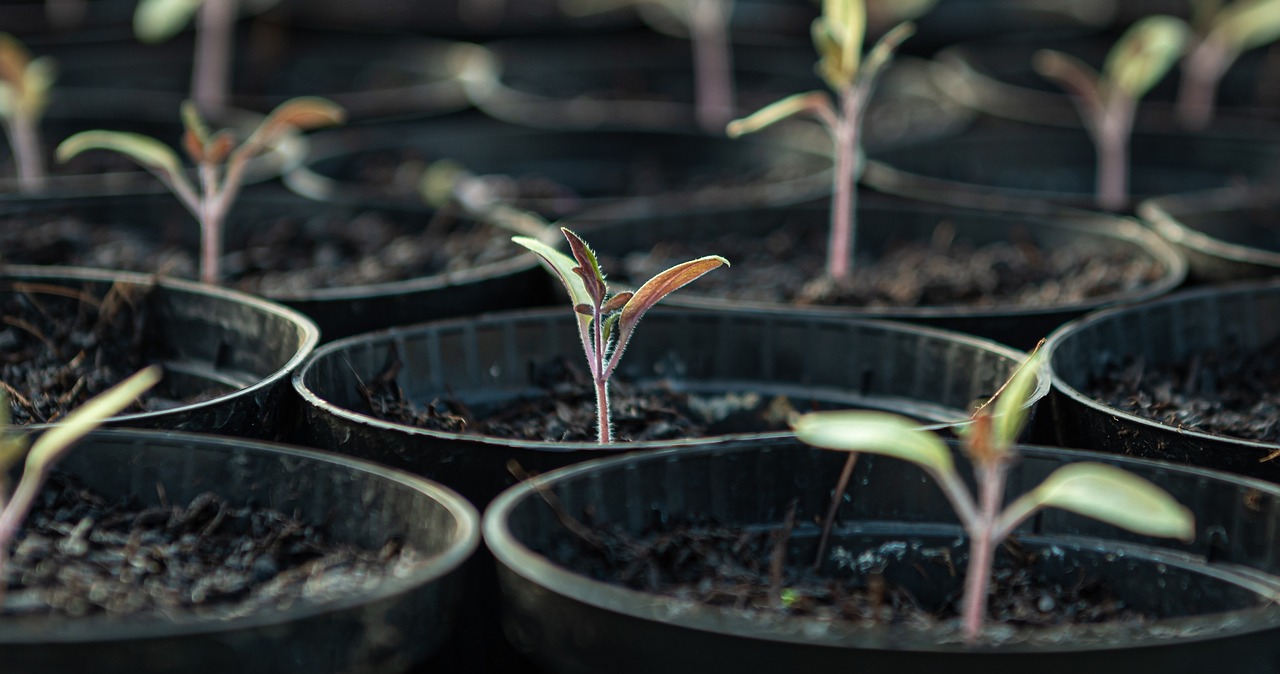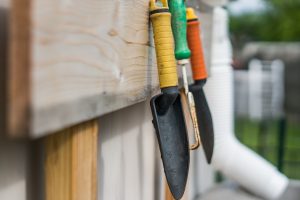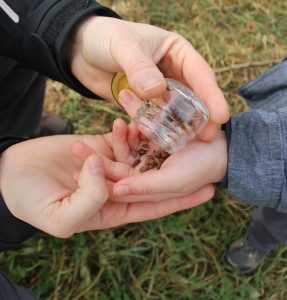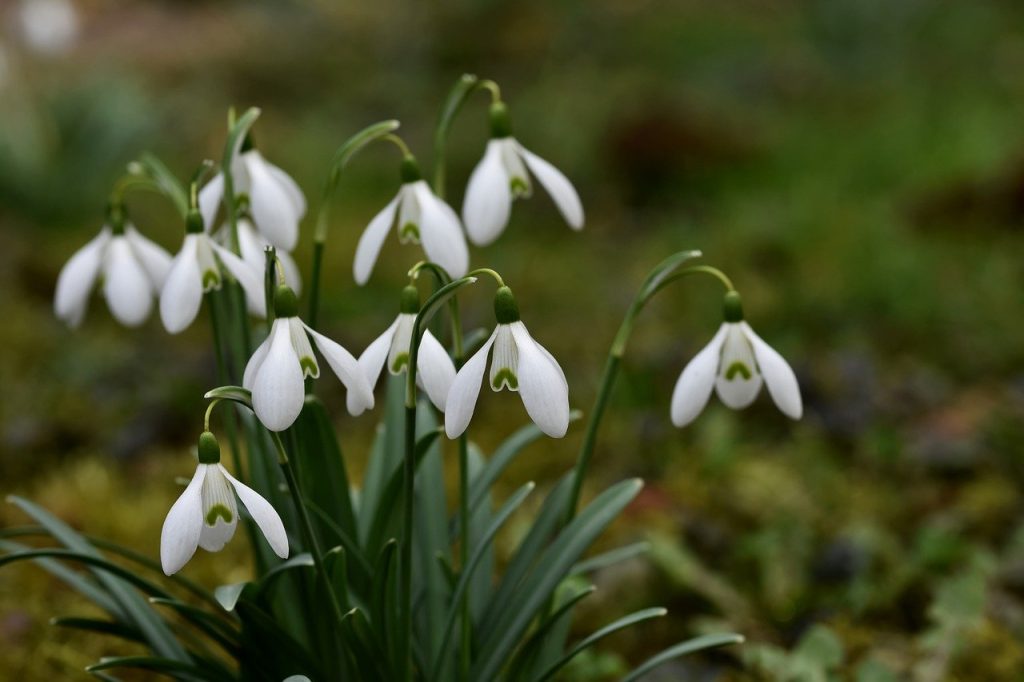Sowing seeds and tending – how training supports Transition

21 February 2024
8 minute read
There is a cartoon I saw once which made an indelible imprint on my mind. Two ‘Moomin-like’ characters are on a piece of land representing the year ahead. One, slightly flustered and pessimistic, stands behind the other, asking: “What do you think the year will bring?” Kneeling down and clearly working the ground before them, the other character replies “I think it will bring flowers”. “Yeah, how come?” the first snaps back. Trowel in hand and watering can at the ready the friend responds: “Because I’m planting flowers”.
It’s hard not to be pessimistic about the state of the world; the atrocities of war through our screens or record temperatures. In the face of such pervading forces, it can be difficult to remember that we have agency and responsibility. By this I mean that we can be agents of change, and we each hold an ability to respond. This is how I choose to understand response-ability.
How do we move from feelings into ideas, and ideas into action? For almost 20 years the Transition Network has attracted people who want to give it a go. It’s held a space and nurtured a global movement where people come together to reimagine and rebuild our world.
With this in mind, I feel honoured and excited to be stepping into the role of Training and Group Support Lead for Transition Together. As a facilitator, activist and trainer working in social and ecological justice for most of my adult life, I’ve learned that I have to tend to this optimism with purpose – what Joanna Macy and Chris Johnstone call an ‘Active Hope’.
Along the way I’ve come into contact with Transition on a number of occasions. I saw the early work of Transition Towns first hand here in Bristol, and I’ve also experienced some of the limitations groups encounter – often leading to replicating unhealthy power dynamics, internal conflict, disillusionment and burnout. Without the awareness or knowledge of how to navigate issues together, groups can become frayed and fall apart, and projects die before they’ve really taken root. Groups can struggle to move from ‘storming’ into ‘norming’ and ‘performing’ and therefore don’t achieve what they set out to do.
But not all groups experience this or unravel when they do hit challenges. There are many strategies, practices, tools and approaches being used to restore health and vitality to groups, and create more accessible, inclusive, supportive and dynamic group cultures.

What would support your group to thrive? Would you benefit from growing facilitation practice, organising skills or exploring new ways to hear the needs of the wider community? Do you want to enhance your group’s visibility, better communicate your message or explore how to share responsibility and become more effective at delivering on agreed actions?
I’m so excited about this role as I’ve experienced first hand how training and support is key to transforming groups and the work that they do. It’s a space to pause and a chance to be held in a process of reflection. Here we can analyse what is going on in a group and what issues keep recurring. With the support of peers and some outside perspective, groups can identify simple actions and adjustments to improve the health of their group, clarify its goals, work out the next steps, or connect with each other and the wider community in new and meaningful ways.
Often this knowledge is based on past attempts that have not been so successful. If we can work with the vulnerability of sharing learnings from our failures as well as our successes then we can cultivate more potential together. A training space enables us to go deeper in a safe and supportive way.
In this sense, training can facilitate an ‘inner transition’ as much as an external one. We often talk about the change we want to see in the world, but the change we want to see in ourselves is a key part of this transformation. How do we live with uncertainty or navigate difficulty? How can we leverage our privileges and hold power collectively? Is there a way to make this shift we are trying to create a just transition?
Being part of Transition should be nurturing, inspiring and empowering. We can work ‘prefiguratively’ – being and working in the way we want things to be, even if they are not this way yet. However, for so many people, groups bring up dynamics and complexities that can be a huge barrier to participation. We all hold different privileges and wield our power in different ways.

There are tried and tested techniques to build trust, enhance communication, organise effectively, listen deeply, respond from a place of resourced capacity, and nurture wellbeing that are being utilised in groups around the world. These are the seeds I think we need to plant in our groups. These are the bulbs I hope will spring into ever more abundance within our movement.
The Transition Movement has been a space where many of these approaches have been woven together and developed, drawing inspiration and guidance from the wider social and ecological justice movement. At Transition Together we have spent a lot of time listening to groups and working to develop training and support that meets the needs of the movement. Here is a brief snapshot of what we have coming up.
Upcoming Training Opportunities
Launch – Saturday 9th & 23rd March
Launch is a 2-part training programme designed to support participants to launch a transition group or rekindle an existing one. It covers a bespoke selection of tools and practices to support the formation of groups, identifying emerging themes and issues in local areas, and organising for change. It’s free to join, just register by completing this application form. This is perfect timing If you are part of a group that is re-emerging, or thinking of registering as a Transition Group – we’d love to see you there!
Thrive – 16th April – 21st May
Running across 6 sessions on Tuesday evenings,Thrive will delve deeper into tools and practices to enable groups to work more effectively. The programme offers an opportunity to explore different aspects of group culture, as well as hone techniques for groups to take action in their communities. We ask that at least two participants from your transition group attend this training to support each other in embedding these ideas into your group and help them develop
In addition to these programmes, I’m excited to be curating a new series of skillshares that will launch in April. These sessions have been brilliant opportunities for groups to share their experiences, cross-pollinate ideas and extend the reach of their work. (Check out recordings of past sessions here.) I’m keen to learn what skills and topics you’d be interested in exploring together. If you have any suggestions you can let me know on Vive or by email.
Time to plant and nurture seeds
Despite the enormity of the multiple crises we face, it’s an exciting time to be working towards a better world. In fact, most of the time I end up asking myself what else there really is to do. When we come together, we can support each other to solve our problems and move forward. As a previous Launch participant said: “In community together, so much can be accomplished. Humans need to stay connected and support each other.”
We might know the conditions and circumstances in our local area, but someone else may have experienced a similar situation before and know what kind of project to plant. Training and support helps us see where something may be wilting, or not getting enough light and attention, and how to structure the attention and energy we have according to our capacities.
Over the last 5 years, every spring I’ve yearned to see snowdrops outside my house. This winter I had the resolve to listen to that inner voice. I sought some advice, bought some organic bulbs and planted them in the front garden. I didn’t know whether they’d grow, but something told me I needed to give it a go. In early February they emerged – their little snowy heads bobbing in the breeze. They are radiant. They tell me: “There is beauty amidst the bleakness; And spring will come again.” They remind me to follow my instinct, and that there is great worth in seeking support and taking action.
